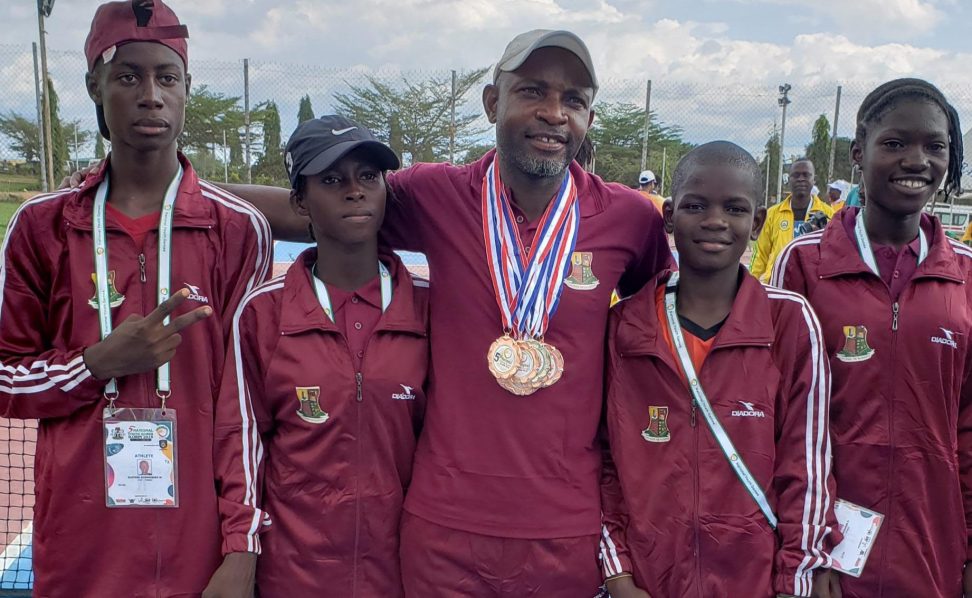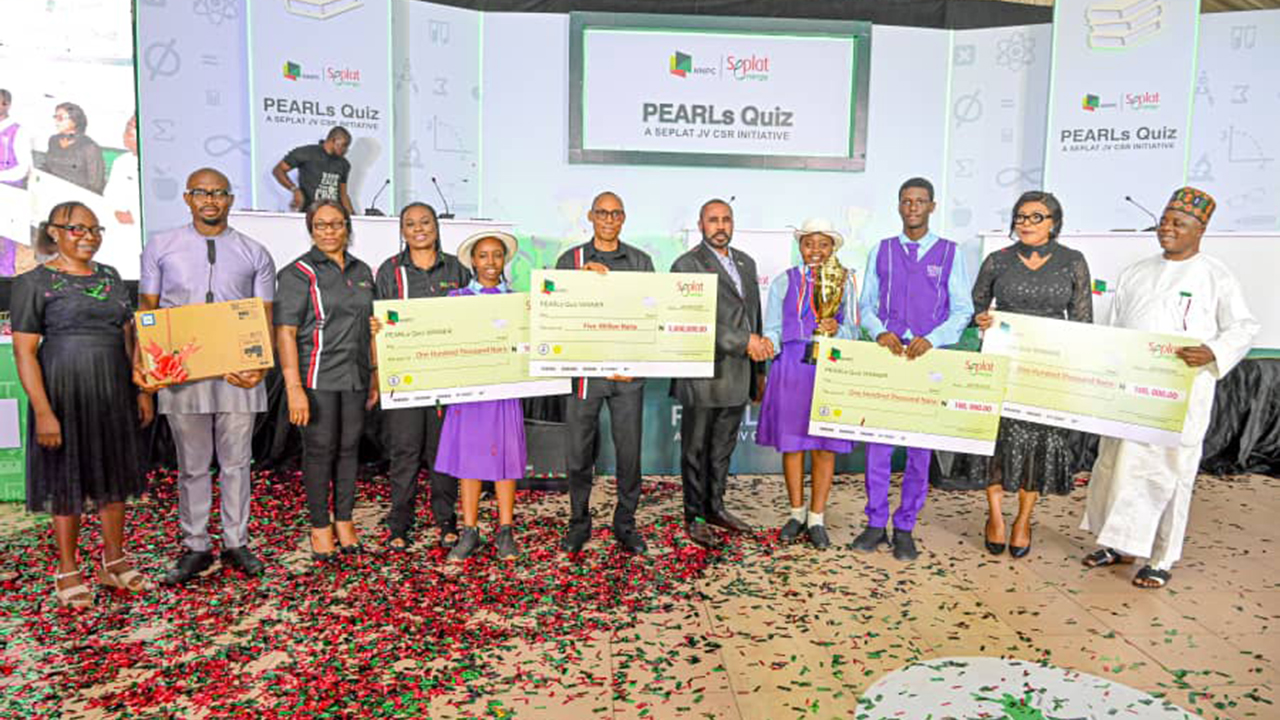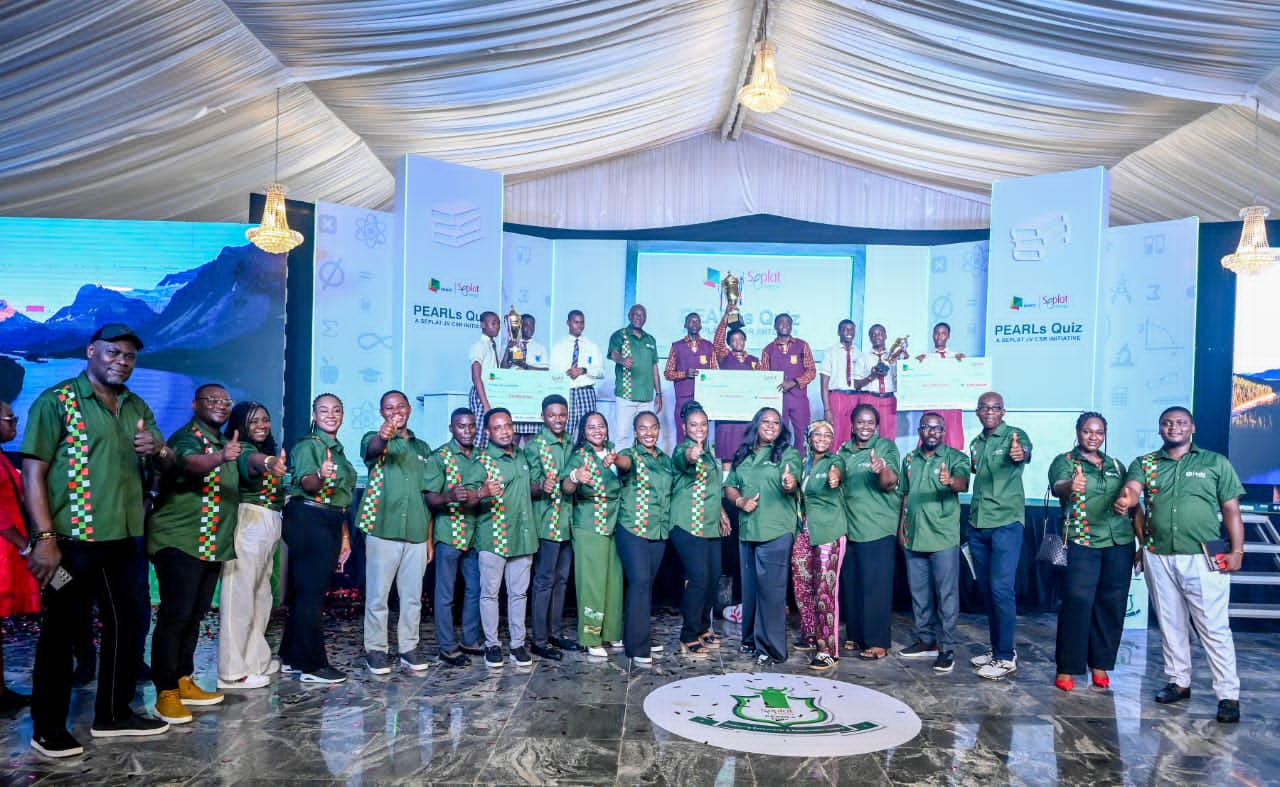
The National Council on Sports (NCS) initiated the National Youth Games (NYG) 10 years ago as a potent avenue to unearth and groom the nation’s feeder teams for all sports. The plan was for the products, or champions of the NYG to graduate to the senior national teams effectively within two years. GOWON AKPODONOR, questions whether the cadet multi-sports fiesta has lived up to expectations, and also looks at some of the issues that may scuttle the nation’s aspirations if not properly addressed.
The Seventh National Youth Games (NYG) recently ended in Asaba, Delta State, after 10 days of competition. At the closing ceremony at the Stephen Keshi Stadium, the acting Permanent Secretary of Edo Sports Commission, Dr. Emmanuel Igbinosa, glanced through the final medals table and said: “I am proud of our athletes because they did their very best despite competing with their “elder brothers and sisters” (much older athletes) in the competition. In the end, we came third on the medals’ table, and I give them kudos.”
Team Delta emerged champions for the seventh time with a total of 51 gold, 34 silver, and 31 bronze medals. Team Lagos occupied the second spot with 21 gold, 19 silver, and 21 bronze medals to narrowly beat Team Edo, which finished as third best with 21 gold, 15 silver, and 17 bronze medals.
Bayelsa and Kwara states settled for the fourth and fifth positions with 20 gold, seven silver, 16 bronze medals, and 13 gold, 14 silver, and nine bronze medals respectively.
To Igbinosa, many issues, particularly age cheating played the destroyer’s role against Edo State at the fiesta.
He, however, thanked the state governor, Godwin Obaseki, for his commitment to sports development, particularly grassroots sports.
While Igbinosa lamented, 13-year-old gymnast, Stephanie Onusiruka, was full of smiles. She was the cynosure of all eyes at the Games after winning four gold medals for Team Delta in the gymnastics event.
Onusiruka contested in three categories, including Beam with 6.50 points, Floor with 8.50, Vault with 12.1, and finished as the Best All-round Gymnast with a cumulative 27.1 points.
“I thank God for making it possible for me to win four gold medals in this Games. My training schedule was very tight,” said Onusiruka, a Senior Secondary School (SS1) student, adding that her success in Asaba was a product of hard work and consistency.
“I had to train every day, except on Sundays. I trained during school hours, on Tuesday, Thursday, Friday, and Saturday between 4 pm and 6 pm. I am so grateful that all that paid off for me,” she enthused.
Asaba 2023 NYG was the second for Onusiruka. She participated in the 2019 edition held in Ilorin, Kwara State, where she got a bronze medal. Onusiriuka was nine years old during “Ilorin 2019.” Since then, the young gymnast has grown in confidence, as she competes with older athletes.
Apart from winning one gold, two silver, and a bronze medal for Team Delta at the Edo 2020 National Sports Festival, the starlet also picked up a gold medal for Nigeria on two occasions, at the African Club Championship held in Pretoria, South Africa in 2019 and 2022.
She continued, “I wish the Delta State government could grant me a scholarship and support my gymnastic career to the highest level.”
No doubt, Onwusiriuka is one of the dividends of the National Youth Games. But whether she will get the needed support to transit into an elite star shortly is a different kettle of fish.
 Onwusiriuka was not the only young star, who thrilled spectators at Asaba 2023. Inside the squash court, an exciting sibling rivalry unfolded as Khadijat AbdulRaheem and Aishat AbdulRahim, from Kwara State battled for supremacy in the final of the singles event when.
Onwusiriuka was not the only young star, who thrilled spectators at Asaba 2023. Inside the squash court, an exciting sibling rivalry unfolded as Khadijat AbdulRaheem and Aishat AbdulRahim, from Kwara State battled for supremacy in the final of the singles event when.
In the end, Khadijat, an SS3 student of Baptist Government Day Secondary School, Ilorin, clinched the gold medal, while Aishat settled for the silver. Despite their fierce competition, both sisters expressed pride that their family secured both the gold and silver medals in the event.
Two promising badminton players from Katsina State, Muhammad Aliyu and Abubakar Abdullahi, who won medals at the Games, have been invited to the national camp, by the Nigeria Badminton Federation, for the West Africa Badminton U15 championships, which will be held in Senegal, next year. Katsina State now has three athletes from the NYG, who have received invitations to national championships.
Ogun State’s wrestler, Obasanjo Okikijesu, is confident of his talent. He declared after winning gold in the boy’s 44 kg freestyle category saying: “I am a soldier who desires to win and let the battle begin.”
In chess, despite not winning anything, five-year-old Nahome Onoja was the cynosure of all eyes as she represented Benue State. The Basic One pupil of Ivydo Nursery and Primary School, Logo 1, Makurdi, was described as the discovery of the Games and was invited to the national camp by the Nigeria Chess Federation, which plans to groom her as a national athlete for future competitions.
Thirteen-year-old swimmer, Demilade Akanbi, a student of Children International School, Lagos, represented Team Lagos at the Asaba event.
Demilade produced one of the best individual performances in the history of the games, winning three gold medals. Her victories in the 50-metre Backstroke, 100-metre Butterfly, and 4×50-metre Mixed Medley Relay are a testament to her exceptional skills and versatility.
“This is the first time that I’m participating in the National Youth Games, and I am quite excited winning all these medals, I will keep improving, as my dream is to make it to the Olympics and also break records,” she stated.

Having a strong support system can make a significant difference in an athlete’s journey. The support and motivation Demilade receives from her mother are undoubtedly valuable factors contributing to her success.
“I get a lot of motivation from my mom. She helps and motivates me. Whenever I am faced with any challenge, she is always there to guide me through. I must say her motivation and support play a key role in what I have achieved thus far,” she stated.
Demilade’s dogged determination to explode on the international swimming scene made her mother, Mrs Atolani Akanbi, ask Nigerians to hold the Sports Ministry, and indeed the Federal Government responsible if her daughter fails to win laurels at the world stage, including the African Games, Commonwealth Games and the Olympics.
Former Nigerian international and one-time Special Assistant to former Delta State Governor, Ifeanyi Okowa, Stephen Cole, believes that Demilade has what it takes to be an Olympic champion.
“There is no other stage for you to prove your talent than this National Youth Games, especially in a country like ours,” Cole said.
The National Youth Games started in 2013 during President Goodluck Jonathan’s administration as a platform for discovering and nurturing young talents and showcasing the nation’s potential for excellence in various sports disciplines.
These talented athletes serve as a testament to the future of Nigerian sports, and their achievements inspire hope and excitement within the sporting community.
Some states have started embracing sports, and dominating some fields that were previously alien to them.
However, some individuals want the age limit for the Games to be moved to U-17 years from the present U-15 level to serve a more useful purpose of being the feeder to the junior’s (U-18 and U-19) national teams.
To those in that school of thought, the present U-15 status of the Games does not meet much of its expectations because the athletes are still too young for the purpose.
Coach Yahaya Sule from Gombe State told The Guardian that the original target was to harvest young Nigerians who could immediately replace the nation’s aging champions. “Now, I believe that we need to review the age limit upward.”
While many see the NYG as the gateway to national rebirth in sports, Chairman, of Lagos State Sports Commission, Mr Sola Aiyepeku, said the Games does not add any value to Nigerian sports.
He told journalists during the Games that there ought to be another competition for the U-16s and U-17s before the athletes transcend to the National Sports Festival (NSF).
A former chairman of Delta State Sports Commission, Chief Solomon Ogba, agrees with Aiyepeku, saying that there is a need for the Grassroots Department of the Federal Ministry of Sports to come up with a competition that would accommodate athletes who have passed the age of 15 since the NYG is meant for 15-year-olds and below.
Ogba, a former president of the Athletics Federation of Nigeria (AFN), advised the ministry to call a meeting of the National Sports Council and submit such a proposal, assuring that it would get their support.
In 2013, the likes of Tobiloba Amusan, Divine Oduduru, and Ese Brume were discovered through various grassroots programmes initiated by the Ogba-led administration as AFN president, with Navy Commodore Omatseye Nesiama as technical director.
Ogba said: “It took Tobi Amusan more than 11 years to become a world champion. She dominated Africa before emerging as a world champion. The NYG has also produced many athletes, including Favour Ofili, who is now based in the United States.
“So, the Grassroots Department of the Ministry must not allow the efforts of the states, who are fast buying into the grassroots development project, to be wasted. Some of them spent a fortune to discover and nurture these athletes to where they are now. Before now, many of them were not interested in sports, but today, it is a different ball game. Many states are becoming a force to reckon with, even in the strongholds of other states,” Ogba stated.
Some have suggested the need for talents discovered at Asaba 2023 to be nurtured to stardom.
“But that can only be achieved by having a list of those outstanding athletes, inviting them to camp during school holidays, where they would be tutored and prepared ahead of major competitions,” Coach Faith Osakwe said.
She continued: “We must not wait until there is a need to prepare for competitions. These cadet athletes can also be exposed to competitions within and outside the shores of the country. These are the ones that will replace the aging athletes.”
However, one state that is sliding away from prominence as far as the National Youth Games is Cross River State.
The state under former Governor Liyel Imoke, was a model as far as grassroots sports development is concerned.
During that golden era, Governor Imoke contracted former national athlete and one-time captain of Team Nigeria to the Olympics, Bruce Ijirigho, to establish a comprehensive sports development programme for the state.
According to Ijirigho, Imoke “demonstrated a lot of political will, by backing the programme with a piece of legislation, personally interfaced with us on any matter concerning the programme, provided all the funds that we needed and above all, gave us a free hand to run the programme.”
The programme was an instant success. According to Ijirigho, “records don’t lie – between December 2009 and October 2015, over 300, 000 young boys and girls participated in the programme.
“The programme propelled the state to the top of youth sports development, and performance for an unprecedented four-year. Cross River State won the National School Sports Festival between 2011 and 2015 when the state also became a catchment area for athletes who represented and won laurels for Nigeria in international competitions. Sadly, in 2015, the programme was discontinued.”
From his base in the U.S., Ijirigho lamented the fate of the state when he found out that Team Cross River to Asaba 2023 NYG finished 26th with just five silver and eight bronze medals. No gold.
Asaba 2023 NYG brought to the fore, the faces of new states dominating events outside their original domains, or where they hitherto had comparative advantage.
For instance, the defunct Bendel State dominated the sprint before metamorphosing into Edo and Delta states. But at the just-concluded NYG, Kwara and Anambra showed dominance, winning the sprint medals and leaving Team Delta with only the 4x400m and mixed relay medals.
Another surprising feat was recorded by Lagos State, which dominated the swimming event with four gold medals against states like Bayelsa, Delta, Rivers, and Ondo, which hitherto ruled the swimming pools.
It was the same story with wrestling, which Bayelsa had dominated for some time.
Agboola Tobiloba, an Oyo State indigene, who represented the Federal Capital Territory, was a standout tennis player, winning two gold medals.
“This is my first time at the youth games and I am proud to have won two gold medals in the boys’ singles and doubles,” he said.
Special athletes did not just feature at the 7th NYG but also showcased their exceptional talents.
Ogun State’s deaf athlete, Timileyin Okeowo, won two medals- gold in 100m, and silver medal in 200m deaf athletics.
“I am happy to win here, and I am willing to make Nigeria proud at international competitions,” the athlete communicated in sign language.






